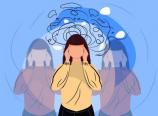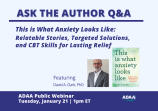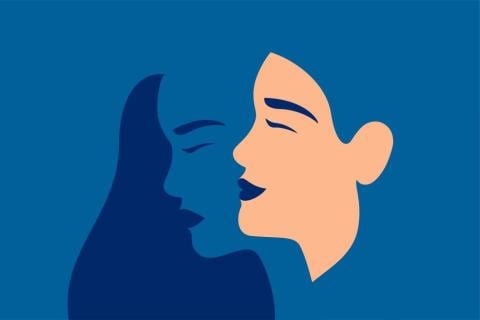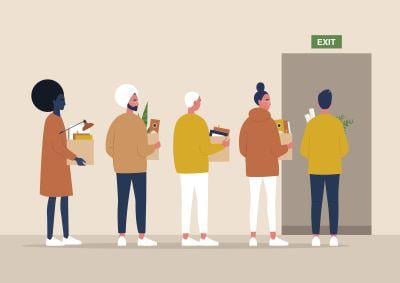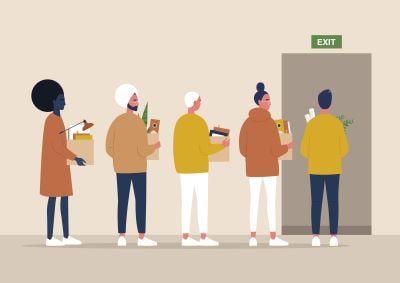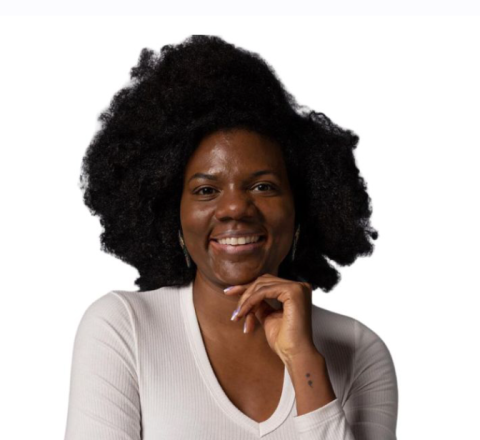Walking Tall in My Mental Health After a Mass Shooting
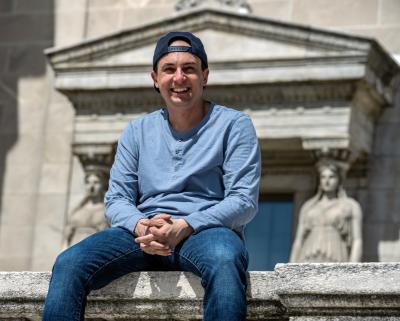
I experienced my first ever panic attack the evening of July 4th 2022. Some of you may recognize that date. Yes, Independence Day. A day meant for barbecues and celebrations, get-togethers with friends and loved ones, the waving of flags and banners, and of course parades and fireworks. But that particular day will go down in history as a tragedy from which I still feel its effects.
After a mass shooting, there is a lot of debate about gun control, restricting access to purchasing arms, imposing stricter background checks, and even discussion of the perpetrator’s mental state of mind. Often, the immediate mental health needs of the victims and survivors take a backseat. Not to say that they, and I will include myself in this statement, don’t receive mental health services and support, and are eventually diagnosed, attended to, and treated, if needed, but in my experience, the breaking news and media sensationalism of the horrific event get pushed to the forefront while mental health receives sideline coverage, if at all.
As a survivor of the mass shooting at the July 4th parade in Highland Park, Illinois, in 2022, I have, for the past few years, been working to change this imbalance. The attention to the mental health of victims of mass shootings, widespread violence, and traumatic events all over the country is essential. I have been dealing with my own mental health in the aftermath of that horrific event.
In my capacity as Assistant Recreation Director at the Park District of Highland Park the day of the shooting, I was responsible for my employees - about 150 of them were present – as well as children at our summer camps who took part in the parade. As the event’s co-chair, I also felt accountable for the hundreds of people who were there to march and participate in the festivities. It was a day we looked forward to each year, coming together as a community to celebrate freedom and independence.
Up until the shooting, I considered myself fortunate - even lucky - to have been extremely healthy, both physically and mentally. I’d never experienced anxiety, panic, depression, or any sort of mental health issue. But that all changed in an instant.
Believe it or not, I went straight back to work on July 5th. As a community resource, the Park District held space for anyone affected by the tragedy. There was peer support, hosted by an incredible group of first responders turned therapists and clinicians, therapy dogs, vigils and memorial services, as well as group counseling and bereavement support. We were blessed as a community to be able to do that but at the same time, I did not address my own mental health needs as fully and as immediately as I should have. Part of it was I threw myself back into work - I thought I could deal with it on my own through exercise, healthy eating, and activities to distract my mind and body. Some of it was the stigma and being seen as weak for having mental health challenges so I tried to do it alone. And part of it was I just didn’t want to add one more thing to an already busy schedule. Was I too proud or too stupid? I think I thought I could deal with it through hard work - just as I had succeeded in everything else in my life so far. I just thought it would pass.
The thing about a tragic event is that the physicalness of it passes, time moves on, and life continues. We mourn and commemorate but the world doesn’t stop, and as an employee of the Park District, for better or for worse, I was never really able to step away from what had happened and take the time to heal.
For months after the shooting, I suffered from panic attacks, anxiety, depression, and terrible insomnia, and while I was in treatment sporadically (refused to take any medication at that time), it was more like I had one foot out the door. Then on April 4th of 2023, students at Highland Park High School were holding a peaceful protest– the shooting in Nashville had just happened – but upon re-entering the school, there was a scare as someone had brought a gun onto campus and that put the school and the entire neighborhood in lockdown. I was at work that day and was somehow able to mobilize and lead my team in staying safe through the incident, but as soon as calm returned, I had a significant panic attack. It was the first time I had one at work and it rattled me.
Again I went back to work the next day but this time was different. I went to see my doctor who prescribed medication but I just wasn’t ready. I went on work leave and tried a self-created mental health bootcamp – exercising, trying to get some rest / sleep, spending time outdoors - but several weeks later, I was still suffering. At this point, the one-year anniversary of the shooting was close and I started experiencing really violent panic attacks.
My rock-bottom moment came when I had a bad attack while driving. With 4th of July around the corner, I drove by some people innocently setting up small American flags along the side of the street. It triggered me and that’s when I knew I needed professional help. I went to see a psychiatrist who diagnosed me with anxiety, depression, insomnia, and PTSD! I went on medication and got the care I so desperately needed. The care and treatment that helped me to stand tall again.
Going through trauma like that, I felt like I had reverted to some small version of myself – as if I had forgotten how to walk, almost crawling blindly through life. When I finally got the help that I needed, I started to feel growth. Emotionally and psychologically I could feel myself “growing again” - starting to walk tall again.
I have teamed up with another mass shooting survivor (Las Vegas Oct 1, 2017) and a New York psychologist and we created The Walking Tall Movement. Guided by strength, compassion, and love, our mission is to inspire humanity to Walk Tall for those suffering with their mental health until they can Walk Tall on their own. We have a podcast and sponsor events, we aim to create peer support groups for communities that have endured mass violence or traumatic experiences, and there’s a foundation that aspires to mobilize people with lived experience in times of trauma.
For me, while therapy, medication, and exercise have all been essential components of my treatment, I don’t think I would be where I am today without peer support. I wanted to share my story through ADAA and work with ADAA to ensure that anyone and everyone going through a mental health crisis, trauma, or any sort of anxiety, depression, or related disorder knows they are not alone. With ADAA, you are heard, your story is valid. We are peers and we can get through this.
- Share Your Story and Voice and Help #breakthestigma Around Mental Health
- Support ADAA's Mission - Every Gift Makes an Impact
- Join an ADAA Online Peer to Peer Support Community
- ADAA Find Your Therapist

